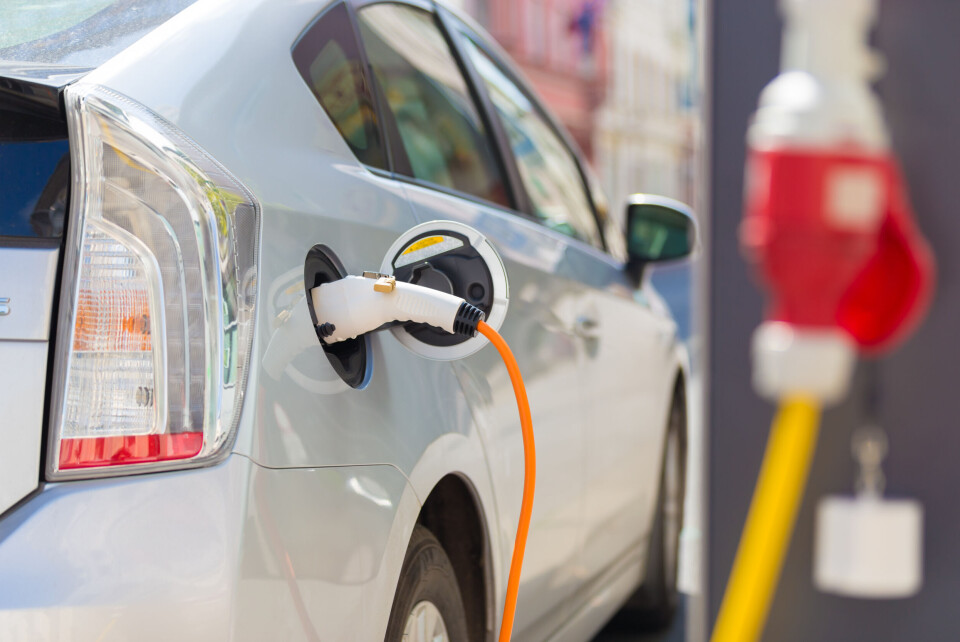-
Good news for many micro-entrepreneurs in France: plans to lower VAT threshold rejected by Senate
Vote reverses proposal to lower tax exemption thresholds for self-employed workers
-
EasyJet expected to expand Bordeaux coverage in summer 2026
Aircraft have been redistributed following the closure of Toulouse hub
-
Briton’s EU voting rights cancelled in last-minute ruling by France's top appeal court
British civil servant Alice Bouilliez had previously been reinstated
Do not minimise electric car CO2 emissions, says French association
A leading consumer association says CO2 produced during a car’s manufacturing is not taken into account when deciding how eco-friendly a vehicle is

Consumers should not underestimate the CO2 emissions of electric cars, a leading French consumer group has warned, and has called for better information to be made available.
UFC-Que Choisir has denouncing “the inability of the current energy label to guide consumers towards the least polluting electric vehicles”.
It is now calling for “a series of reforms” to ensure that the transition to electric vehicles both “respects environmental objectives and consumer interests”. It also said that it promotes public transport “above all”.
Unsuitable energy labelling
The group particularly hit out at the current energy and pollutant labelling system for electric cars, which it said does not take into account the emissions caused in the manufacturing process.
It said that “the emissions of electric cars should not be underestimated”, even though electric cars do have reduced greenhouse gas emissions in comparison to combustion vehicles.
This is because the production of electric cars is more “emissions intensive”. It used the example of a Peugeot 208. The manufacturing of the petrol version produces 7.3 tonnes of CO2, compared with 12.8 tonnes for the electric model.
Nevertheless, it said, “the difference is largely offset over the entire life cycle” of the vehicle.
It said the petrol Peugeot 208 produced 44.4 tonnes over its existence, against 14.8 tonnes for the electric one.
UFC-Que Choisir said: “Consumers should have this essential information when they buy an electric vehicle [but] the current energy label, which must be displayed on new cars, focuses solely on the vehicle's emissions during use.”
The current rating system means that all electric cars have an A label and emit 0 gCO2/km.
But the group said: “This label is totally unsuitable for electric cars because neither the emissions linked to manufacturing nor those from the electricity used are taken into account. Consumers cannot differentiate between the climate impact of different electric car models. They are therefore in the dark.”
Read also: ‘We tried out driving from Yorkshire to Dordogne in an electric car’
Life-cycle labelling
Instead, UFC-Que Choisir has called for “an energy label drawn up on the basis of a life cycle analysis”. This would show the cars that “really do emit the least” over their lifecycle, and enable emissions to genuinely reduce, it argued.
The group also said that the current subsidies available for households to buy an electric car are still insufficient, and not flexible enough, nor cognisant of different household incomes.
It said: “The ecological grant does not really facilitate access to electric cars. For example, a less-well-off consumer will receive €5,616 for the purchase of a Dacia Spring, while a wealthy person will receive €5,000 for the purchase of a Tesla Model 3, i.e. virtually the same amount.”
It also called the amount of aid available for a second-hand electric car (€1,000) “derisory”.
Read more: What help is available to rent an electric car in France?
Five major recommendations for electric vehicle marketing and sales
UFC-Que Choisir called for five major changes when it comes to electric vehicles:
The ability to use the conversion grant to purchase public transport tickets and season tickets instead, as well as on platforms offering car-sharing and car-pool services
An overhaul of the system of incentives and penalties, so that it steers consumers towards the least-polluting vehicles, both new and second-hand
A reform of the ‘energy label’ to enable consumers to identify the vehicles that really do emit the least, taking into account emissions at the vehicle manufacturing stage
Mandatory provision of a battery health certificate as part of the sale of a second-hand electric vehicle
State support to raise awareness of the shortcomings of electric vehicles, including the weight of the batteries, and their large use of many imported materials in the manufacture
The group’s warnings come after President Emmanuel Macron said he wanted to “reindustrialise” France and included electric car battery production as a major means of doing so.
Read more: How does Emmanuel Macron want to ‘reindustrialise’ France?
Read more: France set to open its first electric car battery factory
Until now, France has suffered in its battery production compared to China and the US. This is because China controls much of the supply chain for the major metals used in the process, including nickel, cobalt, and manganese. But now France aims to be self-sufficient in electric car batteries by 2027.
Like other European countries, France is set to ban the sale of new combustion vehicles from 2035.
Related articles
France wants to make €100-a-month electric cars a reality
France considers limiting electric car grants to EU vehicles only























